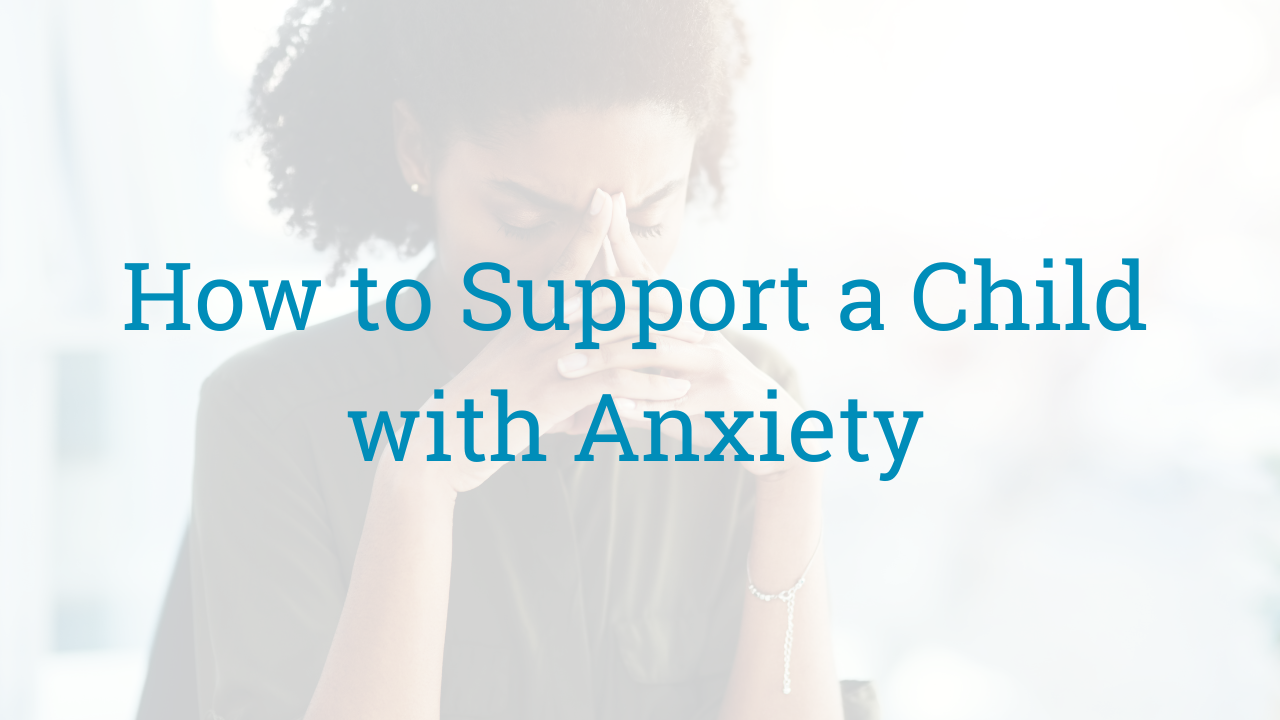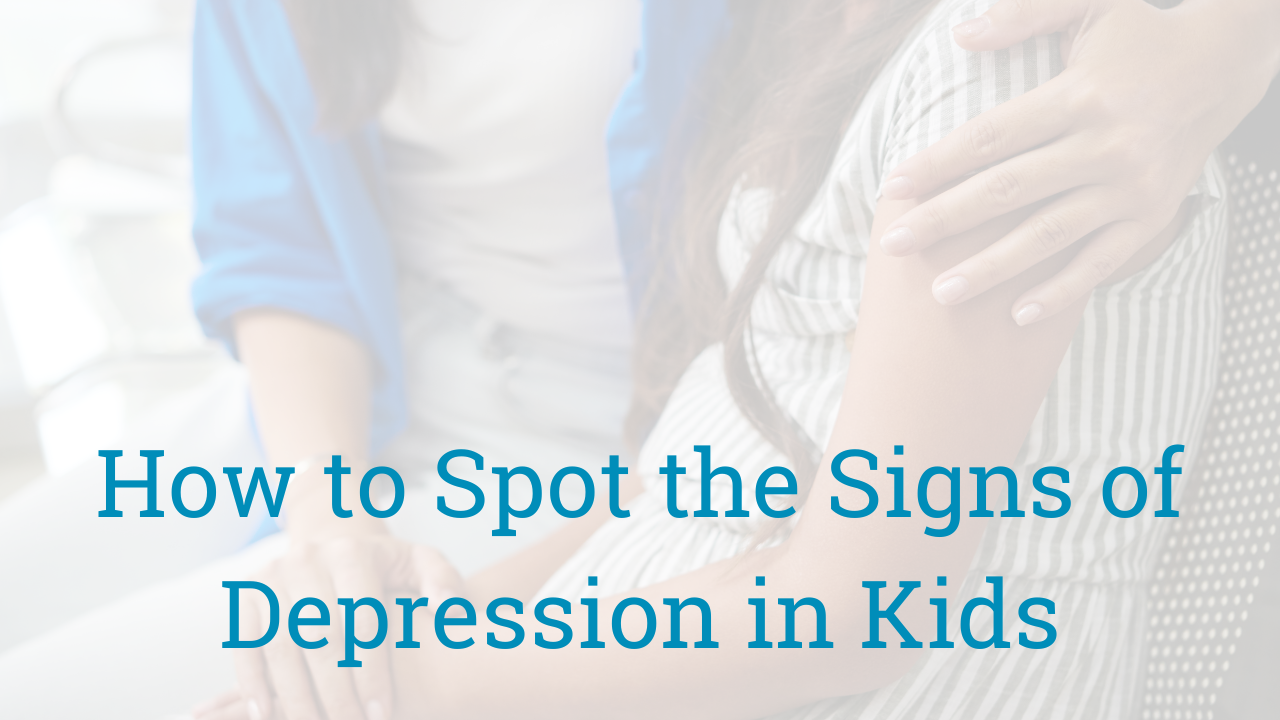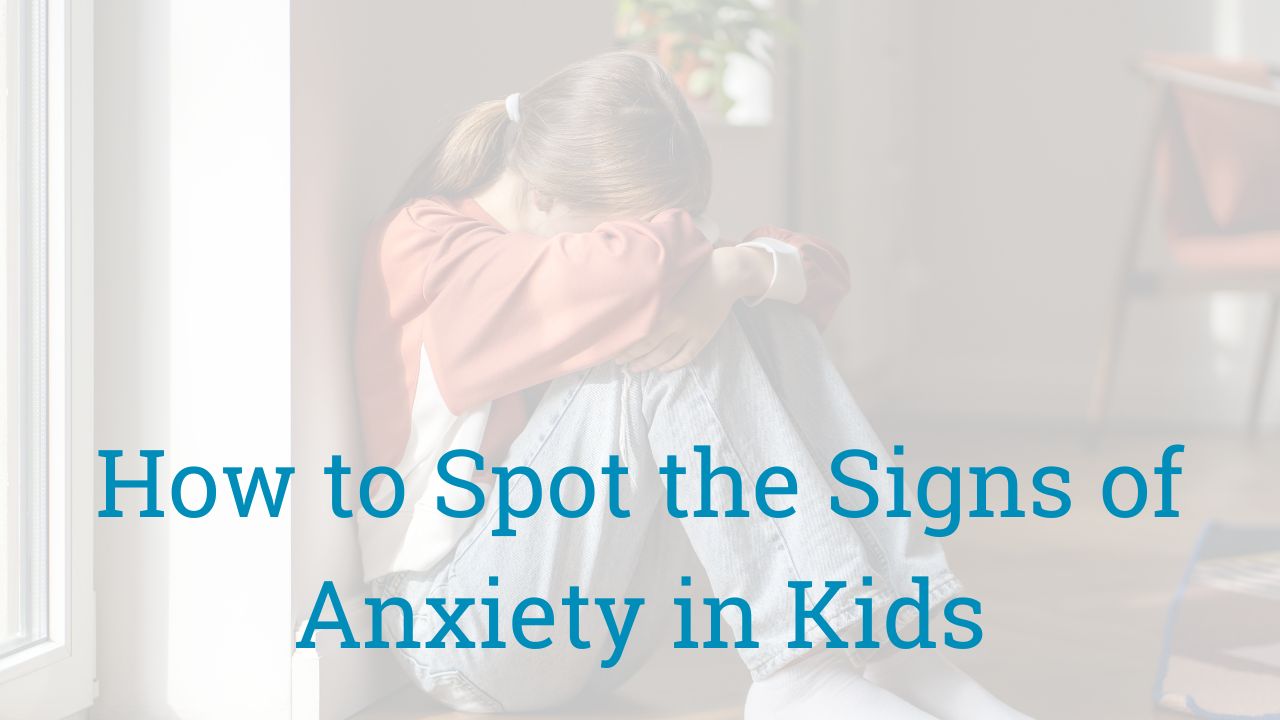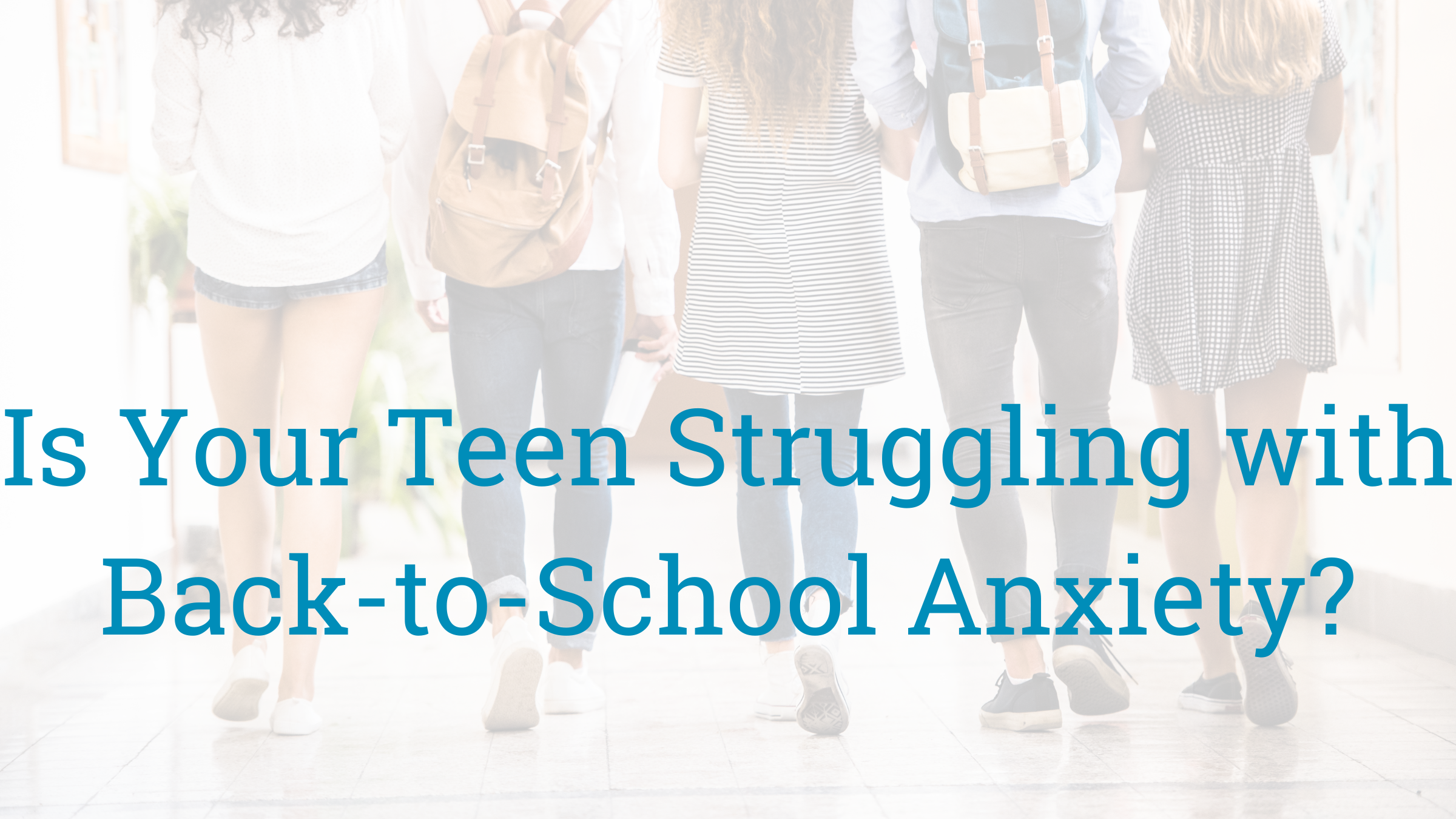
Understanding Hypomania in the Spring
For many people with bipolar spectrum disorders, including bipolar II disorder or cyclothymia, the arrival of spring can bring an unexpected challenge—hypomania. Hypomania is a state of elevated mood, increased energy, and heightened activity levels that can feel productive or even exhilarating at first.
However, if left unmanaged, it can lead to impaired judgment, increased impulsivity, and interpersonal or occupational difficulties.
Spring’s longer days and increased sunlight can impact circadian rhythms and neurotransmitter levels, potentially triggering mood shifts. If you notice racing thoughts, decreased need for sleep, excessive optimism, or impulsivity, take these proactive steps to support your mental health.
Tips for Preventing Hypomania
1. Stick to a Consistent Sleep Schedule
Lack of sleep can worsen hypomania. Try to:
• Go to bed and wake up at the same time each day
• Limit screen time before bed
• Create a relaxing bedtime routine
Read more here: [Do Warm-Colored Lights Help Sleep?]
2. Monitor Your Mood Daily
Tracking your mood can help you identify early warning signs. Use a journal or a mood-tracking app to note:
• Sleep patterns
• Energy levels
• Thoughts and behaviors
If you notice escalating symptoms, contact your treatment provider as soon as possible.
3. Be Mindful of Impulsivity
Hypomania can lead to risky behavior, such as unplanned spending, overcommitting, or socially inappropriate actions. To stay grounded:
• Set spending limits and avoid impulsive purchases
• Pause before making major commitments
• Check in with a trusted friend, therapist, or loved one for feedback
4. Prioritize Balanced Nutrition & Exercise
Spring’s warmer weather may inspire more activity, which can support well-being—but overstimulation may worsen symptoms. Try to:
• Stick to moderate, consistent exercise
• Eat a balanced diet to stabilize energy and blood sugar
• Limit excessive caffeine, sugar, and alcohol
5. Practice Relaxation Techniques
To offset heightened energy, integrate calming practices:
• Mindfulness or meditation to slow racing thoughts
• Gentle yoga or stretching
• Deep breathing to regulate the nervous system
6. Stay Connected to Your Support System
Hypomania can sometimes feel empowering, but staying connected ensures accountability. Keep in touch with:
• Your psychiatrist and other mental health providers
• Friends and family who can help you recognize symptoms early
• Support groups for shared experiences
When to Seek Professional Help
If you notice signs of hypomania—such as decreased need for sleep, racing thoughts, or impulsive behavior—contact your psychiatrist or mental health provider promptly.
While hypomania may not always feel distressing, it can escalate quickly and lead to impaired decision-making or risky behavior. Early treatment can help prevent more serious complications.
If you feel out of control, unsafe, or are unsure whether your symptoms are becoming more severe, seek immediate medical attention or visit the nearest emergency room.
At Next Step 4 Mental Health, our team specializes in helping individuals manage mood disorders with personalized treatment plans—including therapy, medication, and supportive lifestyle strategies.
Learn More

How to Support a Child Recently Diagnosed with Anxiety
When a child is diagnosed with anxiety, it can be a challenging and emotional time for both the child and their family. Understanding how to support them effectively can make a significant difference in helping them navigate their feelings and manage their anxiety.
Here are some key steps to support a child with an anxiety diagnosis:
1. Educate Yourself and Your Child
The first step in supporting your child is to educate yourself about anxiety. Understanding the condition helps reduce any fears or misconceptions, both for you and your child. Sit down with your child and explain anxiety in an age-appropriate way, using simple terms. Let them know that feeling anxious is a normal part of life and that they are not alone.
2. Create a Supportive Environment
Children with anxiety often feel overwhelmed and misunderstood. It’s important to create a safe and supportive environment at home where your child feels comfortable expressing their feelings without judgment. Encourage open communication, listen actively, and let them know that it’s okay to have anxious feelings.
3. Establish Routine and Predictability
Anxiety thrives in uncertainty. One of the most helpful things you can do is establish a consistent daily routine. Having a clear schedule for school, meals, homework, and bedtime can help your child feel more secure and in control of their environment. Routines can ease anxiety by reducing the unknowns.
4. Practice Coping Strategies Together
Teach your child coping strategies to manage their anxiety. Breathing exercises, mindfulness techniques, and progressive muscle relaxation are all effective tools. Practice these strategies together so your child can learn to use them in moments of anxiety. Over time, these tools can help them feel more in control of their emotions.
5. Encourage Healthy Habits
Physical health is deeply connected to mental well-being. Encourage your child to engage in regular physical activity, maintain a balanced diet, and get enough sleep. A healthy body can help regulate the nervous system and reduce the intensity of anxiety.
6. Seek Professional Support
While family support is crucial, working with a mental health professional can provide your child with additional tools to manage their anxiety. Here at Next Step 4 Mental Health, a mental health professional trained in child anxiety can guide your child in understanding their triggers and developing healthier thought patterns.
Cognitive-behavioral therapy (CBT) is a proven method for treating anxiety in children and can make a huge difference.
7. Be Patient and Understanding
Supporting a child with anxiety takes time and patience. Progress may be slow, and there may be setbacks, but it’s important to celebrate small victories along the way. Encourage your child to take things one step at a time, and reassure them that it’s okay to seek help when they need it.
At Next Step 4 Mental Health, we understand that each child’s experience with anxiety is unique, and we are here to help both children and families navigate this challenging journey.
If you’re looking for additional support or guidance, reach out to us today. Together, we can help your child build resilience, learn coping skills, and thrive despite anxiety.
Learn More

How to Spot the Signs of Depression in Kids
Depression in children can be difficult to recognize, especially since kids often express emotions differently than adults. If you suspect your child may be struggling with depression, it’s crucial to identify the signs early so they can receive the appropriate help.
Here are some key signs of depression to watch for:
1. Persistent Sadness or Irritability
One of the most common signs of depression in children is a persistent feeling of sadness. However, depression in kids might also show up as irritability or anger, especially if they have difficulty expressing their emotions. They may appear withdrawn or seem uninterested in activities they once enjoyed.
Read this blog to learn about signs of depression in teens.
2. Changes in Appetite or Sleep Patterns
Depressed children may experience significant changes in their eating or sleeping habits. They may lose interest in food and eat less, or conversely, overeat as a form of comfort. Sleep disturbances like insomnia, waking up early, or sleeping excessively are also common.
3. Difficulty Concentrating
Children who are depressed often struggle to focus on tasks at school or at home. They may have trouble completing assignments or may appear distracted and disengaged during conversations or activities.
4. Loss of Interest in Activities
If your child suddenly loses interest in activities they once loved, such as sports, hobbies, or socializing, this can be a sign of depression. They may withdraw from friends or refuse invitations to play or participate in group activities.
5. Physical Complaints
Depression can sometimes manifest as physical symptoms, including frequent headaches, stomachaches, or unexplained aches and pains. These physical complaints may worsen during times of emotional distress.
6. Thoughts of Death or Suicide
In more severe cases, children may express thoughts of death or suicide. If your child expresses feelings of hopelessness or mentions wanting to die, it’s essential to seek immediate help from a mental health professional or emergency services.
If your child is in crisis:
- Call or text 988 – The 988 Suicide & Crisis Lifeline is available 24/7 for immediate support in a mental health crisis. Trained counselors can help you manage the situation and connect you with resources.
- Go to the emergency room or call emergency services (911) – If you’re in immediate danger, it’s crucial to get professional help right away.
How to Help Your Child
If you notice any of these signs, it’s important to provide your child with a safe space to talk about their feelings. Show empathy and let them know it’s okay to feel down sometimes.
A mental health professional can work with you and your child to explore therapeutic options such as counseling, cognitive-behavioral therapy (CBT), or other treatments to help your child manage their depression.
About Dr. Aslam
 Dr. Sofeia Aslam is a child and adolescent psychiatrist with extensive experience in diagnosing and treating depression in young people. She uses evidence-based treatments that are tailored to each child’s unique needs.
Dr. Sofeia Aslam is a child and adolescent psychiatrist with extensive experience in diagnosing and treating depression in young people. She uses evidence-based treatments that are tailored to each child’s unique needs.
Dr. Aslam’s compassionate approach ensures that children feel heard and supported as they work through their emotional struggles.
If your child is showing signs of depression, Dr. Aslam is here to help guide them toward healing.
Reach out to Next Step 4 Mental Health to schedule an appointment and start your child’s journey toward recovery.
Learn More

How to Spot the Signs of Anxiety in Kids
Anxiety is a common challenge among children, and it can often go unnoticed as kids may struggle to express their feelings. As a parent or caregiver, it’s important to know the signs so you can help your child cope with anxious feelings.
Here are some key signs of anxiety in kids to watch for:
1. Excessive Worry
Children with anxiety often worry excessively about everyday situations. They might express fear about going to school, meeting new people, or participating in activities they used to enjoy. This worry may seem disproportionate to the situation, which leads them to focus on worst-case scenarios.
2. Physical Symptoms
Anxiety often manifests physically. Your child may complain of stomachaches, headaches, or other unexplained pains, particularly before stressful events like school or social outings. They may also experience rapid breathing, dizziness, or fatigue when anxious.
3. Avoidance Behaviors
Kids who are anxious may avoid certain activities, people, or places that trigger their anxiety. This could include refusing to go to school, avoiding social interactions, or expressing fear about new experiences. These avoidance behaviors can sometimes interfere with their everyday routines.
4. Restlessness and Trouble Sleeping
Restlessness, fidgeting, or being unable to sit still can be signs of anxiety. Additionally, anxiety can disrupt your child’s sleep, causing nightmares, difficulty falling asleep, or frequent waking during the night.
Read this blog to learn how your lighting can impact your sleep.
5. Irritability and Mood Swings
Children with anxiety may become irritable or easily frustrated. Mood swings, especially in situations that would not normally be stressful, are another common sign.
How to Help Your Child
If you notice any of these signs in your child, it’s important to take action. Encouraging open conversations, validating their feelings, and teaching relaxation techniques can help. If the anxiety persists or affects their daily life, reaching out to a mental health professional can provide the support and tools needed to manage their anxiety effectively.
How Dr. Sofeia Aslam at Next Step 4 Mental Health Can Help
 Dr. Sofeia Aslam specializes in working with children and adolescents and offers a compassionate and effective approach to treating anxiety. Her expertise in child and adolescent psychiatry makes her the right fit for helping children navigate their anxiety and regain a sense of peace and confidence.
Dr. Sofeia Aslam specializes in working with children and adolescents and offers a compassionate and effective approach to treating anxiety. Her expertise in child and adolescent psychiatry makes her the right fit for helping children navigate their anxiety and regain a sense of peace and confidence.
With Dr. Aslam’s guidance, your child can learn coping strategies, develop emotional resilience, and improve their overall mental well-being. If you’re noticing signs of anxiety in your child, Dr. Aslam is here to help.
Contact Next Step 4 Mental Health today to schedule an appointment and take the first step toward supporting your child’s mental health.
Learn More
12 Tips to Deal with Family Tension During Thanksgiving Dinner
Thanksgiving is a time for gratitude and connection, but family gatherings can sometimes come with tension and stress. The good news is you can manage these moments with a little preparation and the right mindset.
Here are 12 tips to help you navigate family dynamics and make the holiday enjoyable for everyone, courtesy of the Next Step 4 Mental Health team.
1. Set Realistic Expectations
Understand that not every family moment will be picture-perfect. Embrace the imperfections and focus on enjoying the positive aspects of the gathering.
2. Practice Gratitude
Shift your focus to what you’re thankful for, like good food, being together, or personal milestones. Gratitude can help create a positive atmosphere and reduce stress. Learn more about gratitude here.
3. Plan Ahead
If you know certain topics lead to conflict, consider steering conversations toward lighter subjects like hobbies, shared memories, or favorite holiday traditions.
4. Establish Personal Boundaries
Decide beforehand what behavior or topics you’re not willing to tolerate, and stick to those boundaries. It’s okay to say, “Let’s agree to disagree,” or excuse yourself from a heated discussion.
You might also consider saying:
- “I’m not comfortable discussing this right now, but if you’d like to discuss it privately, we can plan for that.”
- “I’d rather not share my opinion on XYZ, but I’d love to share more about the latest trip I took. Would you like to see a few pictures?”
5. Take a Breather
Step outside for fresh air or retreat to a quiet room if things get overwhelming. Even a five-minute break can help reset your mood and reduce tension.
6. Bring a Mediator
Sometimes, having a friend or partner present can ease tension and help keep interactions balanced. Their neutral perspective may help defuse potential conflicts.
7. Focus on the Kids
If there are children at the gathering, engage with them. Playing a game, watching a movie, or helping with activities can be a fun distraction from family drama.
8. Stay Busy
Offer to help in the kitchen, refill drinks, or set the table. Staying engaged in tasks can help you avoid getting drawn into difficult conversations.
9. Choose Your Battles
Not every comment or disagreement needs a response. Sometimes, letting go of minor annoyances can keep the peace and preserve your energy. You can learn more about fair fighting here.
Or, click here to learn more about communication in marriage.
10. Practice Empathy
Try to understand where others are coming from. Tension often arises from misunderstandings, and a little compassion can go a long way in diffusing it.
To learn more about empathy, tune into this video narrated by Brene Brown:
11. Have an Exit Strategy
If the situation becomes too stressful, have a plan to leave early. Politely excuse yourself, citing an early morning or other commitments, and prioritize your well-being.
12. Seek Support if Needed
If family tension is a recurring issue, consider speaking with a therapist or counselor to explore strategies for managing these dynamics. You might even consider therapy BEFORE attending a gathering. This can help give you the tools you need to stay calm and create your boundaries.
Thanksgiving is an opportunity to connect, but it’s also important to prioritize your mental health. At Next Step 4 Mental Health, we’re here to help you navigate family challenges and create a path to healthier relationships. Reach out to our team if you need extra support this holiday season.
Learn More
How Certain Wavelengths Help with SAD
When Seasonal Affective Disorder (SAD) hits, it can feel overwhelming, but light therapy offers a proven solution. Specific wavelengths of light can have a significant impact on alleviating SAD symptoms by mimicking natural sunlight and boosting serotonin levels.
But not all light therapy products are created equal, and knowing which ones are backed by evidence is key.
What is SAD?
First things first: what is SAD?
SAD is a type of depression that follows a seasonal pattern, most commonly starting in late fall and lasting through winter when daylight hours are shorter.
People with SAD may experience fatigue, low energy, increased appetite, difficulty concentrating, and feelings of hopelessness or sadness. These symptoms can affect your daily life and overall well-being if left untreated.
Signs of SAD to Watch Out For
Common signs of SAD include:
- Persistent low mood or irritability
- Losing interest in activities you once enjoyed
- Difficulty waking up or feeling excessively tired during the day
- Weight gain or cravings for carbohydrate-rich foods
- Difficulty concentrating or making decisions
If you notice these symptoms during specific times of the year, especially in the fall and winter months, it could be time to consider treatment options.
How Light Therapy Can Help
Consult Your Healthcare Provider First: Before starting light therapy, it’s essential to speak with your healthcare provider. If you have both SAD and bipolar disorder, light therapy should be carefully considered. Rapidly increasing light exposure or using the lightbox for extended periods may trigger manic episodes in those with bipolar disorder.
Additionally, if you have any eye conditions, such as glaucoma, cataracts, or diabetes-related eye damage, it’s crucial to get advice from an eye specialist before beginning light therapy.
How a Light Therapy Box Works
A light therapy box simulates outdoor light, which may help adjust chemicals in the brain responsible for mood and sleep regulation. This can alleviate SAD symptoms, such as fatigue and oversleeping.
When choosing a light therapy box, make sure it:
- Provides 10,000 lux of light exposure
- Minimizes ultraviolet (UV) light
Generally, you should use the lightbox:
- Within the first hour of waking
- For 20 to 30 minutes
- Positioned about 16 to 24 inches from your face (follow the manufacturer’s guidelines for distance)
- With your eyes open, but without directly staring at the light
Since light therapy boxes aren’t FDA-regulated for SAD treatment, it’s important to carefully select one that fits your needs.
Always consult with your physician before trying light therapy.
What to Consider When Choosing a Light Box
Here are some key factors to think about:
- Is it specifically for SAD?: Light therapy lamps meant for skin conditions emit UV light, which can harm your eyes. Make sure the lightbox is intended for treating SAD.
- Brightness: The recommended intensity for SAD treatment is 10,000 lux. Brighter light boxes may reduce the amount of time needed each day compared to dimmer models.
- UV Light: Ensure the light box filters out most or all UV light. If you’re unsure, consult the manufacturer for safety information.
- Eye Safety: Look for a light box with built-in eye protection. If you have pre-existing eye conditions, ask your eye specialist for advice.
- Size and Portability: Light boxes come in various shapes and sizes. Consider whether you need a portable option if you plan to travel during fall and winter.
- Location: Choose a spot where you can easily integrate light therapy into your routine, like while reading or watching TV. Follow the manufacturer’s instructions to make sure you’re sitting at the proper distance for optimal results.
Using a light therapy box correctly, with professional guidance, can make a significant difference in managing SAD symptoms effectively.
Warning: Choose Light Therapy Carefully
It’s important to select a light therapy lamp that offers 10,000 lux of brightness, as research supports this intensity for treating SAD. Be cautious when purchasing—many products may claim to help but lack the necessary specifications or evidence to back their effectiveness.
What to Avoid
Always choose a light therapy product based on scientific evidence. Avoid lamps that offer dimmer lights or those that don’t disclose the lux level. Opt for trusted brands that specify the correct intensity and have positive reviews based on clinical success. By being mindful, you can use light therapy safely and effectively to combat SAD.
Always consult with your physician before trying light therapy.
How Next Step 4 Mental Health Can Help
Next Step 4 Mental Health offers a comprehensive approach to treating SAD. Our experienced professionals are well-versed in counseling, medication management, and other evidence-based treatments that can help you regain balance.
We create personalized treatment plans, combining therapy, lifestyle modifications, and, when necessary, medication to ensure you have the support you need.
Lifestyle Tips to Help with SAD
In addition to seeking professional care, there are several lifestyle changes you can make to help ease the symptoms of SAD:
- Get outside: Exposure to natural sunlight, even for short periods, can help boost your mood.
- Stay active: Regular exercise improves your mental health and combats low energy.
- Maintain a routine: Stick to a consistent sleep schedule to regulate your body’s internal clock.
- Eat a balanced diet: Focus on nutrient-rich foods to help maintain stable energy levels and mood.
When to Reach Out for Help
If you notice that SAD is starting to interfere with your daily life, work, or relationships, it’s time to reach out for help. Seeking support early can prevent symptoms from worsening and help you get back to feeling like yourself again.
Next Step 4 Mental Health is here to help you manage SAD with proven treatments and expert care. Reach out to schedule an appointment and take the next step toward feeling better.
Learn More
8 Mental Health Tips for Fall: Managing the Seasonal Shift
As the days get shorter and the temperatures drop, it’s common to feel a shift in mood and energy levels. The decreasing daylight in the fall can impact your mental health, but there are steps you can take to stay balanced.
Here are some tips to help you manage the seasonal change and protect your well-being.
1. Embrace Natural Light
With fewer daylight hours, it’s important to make the most of natural light. Spend time outdoors during the day, especially in the morning, to boost your mood and energy. If getting outside is tough, try to position yourself near windows to absorb as much sunlight as possible.
2. Maintain a Regular Sleep Routine
The shift in daylight can disrupt your sleep-wake cycle. Establish a consistent sleep schedule to help regulate your body’s internal clock. Aim for 7-9 hours of sleep each night, and avoid screens before bedtime to encourage better rest.
You can learn more about how light affects your sleep here.
3. Stay Active
Exercise is a powerful mood booster, especially when the darker days make you feel sluggish. Whether it’s a brisk walk, yoga, or a workout at the gym, staying physically active can increase endorphins and help combat feelings of fatigue or sadness.
4. Practice Mindfulness
Mindfulness practices like meditation, deep breathing, or journaling can help you stay grounded during the seasonal transition. Set aside a few minutes each day to focus on your mental and emotional well-being, reducing stress and improving your mood.
Try this guided muscle relaxation before bed:
5. Connect with Others
Fall can bring a sense of isolation as the days grow shorter, so it’s important to stay connected with friends and family. Regular social interaction, even virtual, can help combat loneliness and provide emotional support during this time of year.
6. Keep Your Diet Balanced
What you eat can have a big impact on how you feel. Focus on nourishing foods that support your mental health, like leafy greens, whole grains, and omega-3 rich foods like salmon or walnuts. Avoid relying on sugary snacks or caffeine, which can lead to energy crashes and mood swings.

7. Consider Light Therapy
If you find that the lack of daylight significantly affects your mood, light therapy may be an option. Light boxes can mimic natural sunlight, helping to alleviate symptoms of seasonal depression.
Before beginning light therapy, it is important to consult with a physician for recommendations regarding wavelength, dose, duration, timing, etc.
8. Don’t Hesitate to Seek Help
If feelings of sadness, fatigue, or anxiety become overwhelming or persistent, reaching out to a mental health professional can be beneficial. Seasonal Affective Disorder (SAD) is a form of depression that’s triggered by seasonal changes, and it’s important to get the support you need if you’re struggling.
How Next Step 2 Mental Health Can Help
At Next Step 2 Mental Health, we understand how the change in seasons can impact your emotional well-being. Our team of mental health professionals is here to support you through this transition, offering therapy, counseling, and tailored treatment plans for managing seasonal challenges.
Don’t wait to take action—reach out to us today to learn how we can help you maintain your mental health this fall and beyond.
Learn More

Managing Back-to-School Anxiety in Teens
As the new school year begins, many teens experience a mix of excitement and anxiety. For some, the prospect of returning to school can be overwhelming and lead to heightened stress and anxiety.
Understanding the sources of this anxiety and implementing strategies to manage it can help teens navigate the school year with confidence and resilience.
Here’s what you need to know.
Understanding the Sources of Anxiety
Back-to-school anxiety in teens can stem from various factors, including:
- Academic Pressure: The fear of not meeting academic expectations can be a significant source of stress. Teens may worry about grades, exams, and the ability to keep up with coursework.
- Social Concerns: Friendships and peer relationships are crucial during adolescence. Worries about fitting in, making new friends, or dealing with bullying can contribute to anxiety.
- Changes in Routine: The shift from a relaxed summer schedule to a structured school routine can be jarring. Adjusting to early mornings, homework, and extracurricular activities can be challenging.
- Uncertainty and Change: Starting a new school, entering a different grade, or having new teachers and classmates can create feelings of uncertainty and fear of the unknown.
Signs Your Teen is Struggling with Anxiety
It’s important to recognize the signs that your teen may be struggling with back-to-school anxiety.
These can include:
- Physical Symptoms: Complaints of headaches, stomachaches, or fatigue without a clear medical cause may indicate anxiety. You can read more about some of the lesser-known symptoms of anxiety and depression here.
- Changes in Behavior: Your teen may become withdrawn, irritable, or have difficulty concentrating. They might also avoid school-related activities or express reluctance to attend school.
- Sleep Disturbances: Difficulty falling asleep, staying asleep, or waking up feeling unrested can be linked to anxiety. Learn how lighting can impact sleep in Monica Clark’s post here.
- Appetite Changes: Anxiety can lead to changes in eating habits, such as loss of appetite or overeating.
If you notice these signs, it’s important to address the issue and provide support. Early intervention can prevent anxiety from escalating and impacting your teen’s overall well-being.
Strategies to Manage Back-to-School Anxiety
There are several effective strategies you can use to help your teen manage back-to-school anxiety:
- Open Communication: Encourage your teen to talk about their worries and fears. Listen without judgment and validate their feelings. Knowing they have a safe space to express their concerns can be reassuring.
- Problem-Solving Together: Work with your teen to identify specific stressors and brainstorm solutions together. Whether it’s time management, making new friends, or handling difficult subjects, helping them develop a plan can reduce anxiety.
- Practice Relaxation Techniques: Teach your teen relaxation techniques such as deep breathing, mindfulness, or progressive muscle relaxation. These can be useful tools for managing anxiety in the moment.
- Establish a Routine: Help your teen establish a consistent daily routine that includes time for homework, relaxation, and social activities. A predictable schedule can reduce the stress of uncertainty.
- Encourage Social Connections: Encourage your teen to maintain and build social connections. Whether through extracurricular activities, clubs, or simply spending time with friends, strong social ties can provide emotional support.
When to Seek Professional Help
While many teens experience some level of anxiety when returning to school, severe or persistent anxiety may require professional intervention. If your teen’s anxiety is interfering with their daily life, causing significant distress, or if you notice signs of depression, it may be time to seek help from a mental health professional.
At Next Step 2 Mental Health, we offer specialized support for teens dealing with anxiety and other mental health challenges. Our team of professionals can work with your teen to develop coping strategies and provide the tools they need to manage anxiety effectively.
Here for You
Back-to-school anxiety is a common experience for many teens, but with the right support and strategies, it can be managed effectively. By understanding the sources of anxiety, recognizing the signs, and implementing practical coping techniques, you can help your teen navigate the school year with confidence.
If your teen’s anxiety persists or becomes overwhelming, don’t hesitate to seek professional help. With the right care, your teen can thrive both academically and emotionally. Click here to schedule an appointment with us.
Learn More

5 Tips for Teens Preparing for College: Focusing on Mental Health
Preparing for college is an exciting yet challenging time for many teens. As you anticipate the new experiences and opportunities that await, it’s essential to prioritize your mental health.
A strong mental foundation can help you navigate the transition smoothly and make the most out of your college experience.
Here are five tips to help you prepare for college with your mental health in mind, courtesy of the Next Step team.
1. Establish a Self-Care Routine
Before heading off to college, it’s important to develop a self-care routine that you can maintain during your time there. Self-care involves activities that help you recharge and manage stress. This could include:
- Regular Exercise: Physical activity can significantly impact your mood and stress levels. Find an exercise routine that you enjoy, whether it’s jogging, yoga, or playing a sport.
- Healthy Eating: Balanced nutrition plays a crucial role in your mental well-being. Aim to eat a variety of nutritious foods and stay hydrated.
- Adequate Sleep: Prioritize getting enough sleep each night. Aim for 7-9 hours to ensure you’re well-rested and ready to face the day.
2. Learn Stress Management Techniques
College life can be stressful, with academic pressures, social challenges, and being away from home. Learning effective stress management techniques can help you cope with these demands.
Some techniques to consider include:
- Mindfulness and Meditation: Practices like deep breathing, meditation, and mindfulness can help you stay calm and centered. Try this meditation from ADHD Coach Pam Valdes.
- Time Management: Develop good time management skills to balance your academic and social life effectively. Use planners, calendars, or digital tools to keep track of assignments and commitments.
- Relaxation Techniques: Find what works best for you, whether it’s listening to music, reading, or spending time in nature.
3. Build a Support System
Having a strong support system is vital for your mental health. Before you leave for college, identify people who can offer support, including:
- Family and Friends: Stay connected with your family and friends back home. Regular check-ins can provide comfort and reassurance.
- On-Campus Resources: Familiarize yourself with the mental health resources available at your college. This might include counseling services, mental health workshops, and peer support groups.
- New Connections: Be open to forming new friendships and joining clubs or organizations. Building new relationships can help you feel more connected and supported in your new environment.
4. Set Realistic Expectations
Adjusting to college life can take time, and it’s important to set realistic expectations for yourself. Understand that it’s okay to:
- Feel Homesick: Missing home is a natural part of the transition. Allow yourself to feel these emotions and find ways to cope, such as talking to loved ones or bringing comforting items from home.
- Face Challenges: College comes with its own set of challenges. It’s normal to encounter obstacles, whether academic or social. Don’t hesitate to seek help when needed.
- Take Breaks: Give yourself permission to take breaks and relax. Overloading yourself with commitments can lead to burnout. Balance your workload with downtime.
5. Seek Professional Help if Needed
If you find yourself struggling with your mental health, don’t hesitate to seek professional help. Many colleges offer free or low-cost mental health services. Consider:
- Counseling Services: Many colleges have on-campus counseling centers where you can talk to a therapist or counselor about any issues you’re facing.
- Health Centers: Visit your college’s health center for information on mental health services and support.
- Online Resources: There are numerous online resources and hotlines available if you need immediate assistance or support.
- Telehealth: If you’re heading off to school in Kentucky, NextStep2MentalHealth offers telehealth for Kentucky residents within state lines.
Your Mental Health Matters!
Transitioning to college is a significant milestone, and prioritizing your mental health is crucial for a successful and enjoyable experience. By establishing a self-care routine, learning stress management techniques, building a support system, setting realistic expectations, and seeking professional help when needed, you can prepare yourself for the challenges and opportunities that college life brings.
At NextStep2MentalHealth, we are committed to supporting teens and young adults as they navigate this exciting journey. Remember, taking care of your mental health is a continuous process, and it’s okay to ask for help along the way. Wishing you a fulfilling and mentally healthy college experience!
Need more guidance on preparing for college? Contact NextStep2MentalHealth today to learn more about our services and how we can support you.
Learn More

Mental Health Tips for Men: Embrace Wellness This Men’s Health Month
June is Men’s Health Month, a time dedicated to raising awareness about health issues that affect men and encouraging them to prioritize their well-being.
While physical health often takes the spotlight, mental health is equally important. At NextStep2MentalHealth, our multidisciplinary team believes that addressing mental health head-on can lead to a happier, healthier life.
Here are some practical mental health tips tailored for men.
1. Talk About Your Feelings
Society often teaches men to suppress their emotions, but opening up about how you feel is crucial for mental well-being. Talk to a friend, family member, or therapist about what’s on your mind.
Expressing your emotions can reduce stress and help you gain perspective on your problems.
2. Prioritize Physical Activity
Regular exercise is a powerful tool for improving mental health. Physical activity releases endorphins, which are natural mood lifters. Whether you prefer running, lifting weights, or playing sports, find an activity you enjoy and make it a regular part of your routine.
Need motivation? Check out this blog: [How to Get Motivated to Work Out When You’re Depressed]
3. Stay Connected with Others
Maintaining strong relationships is essential for mental health. Spend time with friends and family, join social clubs, or participate in group activities. Building a support network provides a sense of belonging and can help you through tough times.
4. Seek Professional Help When Needed
There’s no shame in asking for help. If you’re struggling with anxiety, depression, or any other mental health issue, seeking professional support is a smart and courageous step.
Our team can provide strategies and treatments to help you manage your symptoms and improve your quality of life.
5. Practice Mindfulness and Relaxation Techniques
Mindfulness and relaxation techniques, such as meditation and deep breathing exercises, can significantly reduce stress and anxiety. Dedicate a few minutes each day to mindfulness practices to clear your mind and find inner peace.
Try this guided meditation to relax:
6. Maintain a Balanced Diet
What you eat can affect your mood and energy levels. A balanced diet rich in fruits, vegetables, lean proteins, and whole grains can promote better mental health. Avoid excessive alcohol and caffeine, as they can exacerbate anxiety and depression.
7. Get Enough Sleep
Quality sleep is essential for mental health. Aim for 7-9 hours of sleep per night and establish a regular sleep routine. Avoid screens before bedtime and create a calming environment to improve your sleep quality.
To learn more about how warm-colored lights can affect your sleep, read this blog “Do Warm-Colored Lights Help You Sleep Better”?
8. Set Realistic Goals
Setting and achieving goals can give you a sense of purpose and accomplishment. Break larger tasks into smaller, manageable steps and celebrate your progress along the way. This can boost your confidence and reduce feelings of overwhelm.
Click here to learn more about SMART goals.
9. Limit Stress
Stress wreaks havoc on your mind and body. Men tend to handle stress differently than women and are more prone to dissociate or externalize it as anger.
Identify the sources of stress in your life and find ways to manage them. This might involve time management techniques, delegating tasks, or simply taking time for yourself to unwind. Reducing stress can improve both your mental and physical health.
10. Engage in Activities You Enjoy
Make time for hobbies and activities that bring you joy. Whether it’s reading, hiking, playing music, or anything else you love, engaging in enjoyable activities can provide a much-needed mental break and boost your mood.
Take the Next Step for Your Mental Health
This Men’s Health Month, take proactive steps to prioritize your mental well-being. At NextStep2MentalHealth, we’re here to support you on your journey. Remember, seeking help and taking care of your mental health is a sign of strength. Embrace these tips, reach out when needed, and take charge of your mental health today.
Click here to request an appointment.
Learn More
